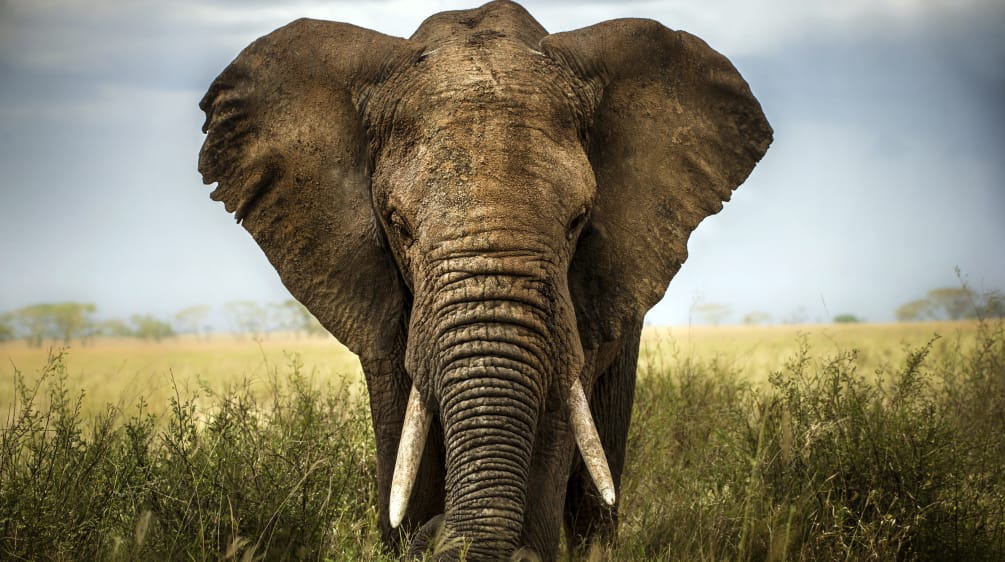Trophy hunting: Debunking the hunting lobby’s lies
 The rarer and more impressive the animal, the more desirable for the hunter. (© Istockphoto)
The rarer and more impressive the animal, the more desirable for the hunter. (© Istockphoto)
Jan 29, 2024
Rainforest Rescue has long said NO to tourists shooting elephants, rhinos and lions for fun. A recently published position paper exposes the lies of hunting lobby groups who claim that killing animals for “sport” somehow benefits conservation and provides income for local people. Belgium is leading the way with its recent import ban on hunting trophies.
Trophy hunters kill tens of thousands of wild animals around the world every year in pursuit of the most impressive tusks, horns and skins. The rarer the species, the more they pay in fees and travel packages. Trophy hunters will stop at nothing, including the killing of endangered and highly protected species such as elephants and rhinos.
In response, the Belgian parliament voted unanimously to ban the import of trophies from endangered species such as hippos, cheetahs and polar bears as of January 25, 2024. A similar ban is expected in France, and we are calling on the German government to follow suit.
To justify their cruel pastime, the hunting lobby uses arguments that do not stand up to scientific scrutiny.
The paper “Trophy Hunting Facts: Myths of Trophy Hunting Debunked” was written by the Munich-based NGO Pro Wildlife and is supported by 18 organizations, including Rainforest Rescue. In 19 pages, it systematically debunks 14 lies often told by the hunting lobby. The anti-hunting arguments are solidly documented with 133 references to scientific studies and reports.
A summary of the 14 arguments:
Myth 1: “Trophy hunting supports species conservation.”
Fact 1: Trophy hunting negatively impacts populations of endangered and protected species.
Myth 2: “Trophy hunting targets surplus or old animals.”
Fact 2: Trophy hunters target animals in their prime that make the best trophies.
Myth 3: “Trophy hunting prevents poaching.”
Fact 3: Poaching and illegal practices are rampant in hunting areas.
Myth 4: “Trophy hunting is strictly regulated and sustainable.”
Fact 4: Corruption and mismanagement are widespread, regulation and control are lacking.
Myth 5: “Trophy hunting guarantees healthy animal populations.”
Fact 5: Trophy hunting disregards ecological and social complexity.
Myth 6: “Trophy hunting reduces human-animal conflicts.”
Fact 6: Trophy hunting exacerbates conflicts between humans and animals.
Myth 7: “Trophy hunting reduces poverty.”
Fact 7: Revenue from trophy hunting does not reach local communities.
Myth 8: “Trophy hunting funds protected areas.”
Fact 8: Trophy hunting revenue barely contributes to preserving protected areas.
Myth 9: “Trophy hunting cannot be replaced by photo tourism.”
Fact 9: Photo tourism provides vastly greater income and opportunities than trophy hunting.
Myth 10: “Trophy hunting is ethically acceptable.”
Fact 10: Killing for fun or a trophy is unethical and incompatible with animal welfare requirements.
Myth 11: “Trophy hunting is a sustainable use of natural resources.”
Fact 11: Greenwashing prevails in the trophy hunting industry.
Myth 12: “Import bans on hunting trophies undermine the sovereignty of communities in exporting countries.”
Fact 12: Importing countries have the right to adopt their own legislation on species conservation.
Myth 13: “Import bans on hunting trophies are neocolonial.”
Fact 13: Trophy hunting cements colonial structures and injustice.
Myth 14: “Conservationists and scientists support trophy hunting.”
Fact 14: Conflicts of interest and links to the hunting industry cloud objectivity.
A PDF of the paper is available for download here.










